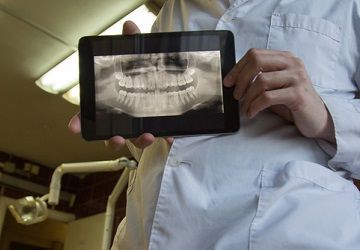Significant Growth Predicted for Dental Imaging Market Through 2024
One report estimates an 8.5 percent compounded annual growth rate for the dental imaging market while another puts the figure at 12 percent.
has forecast the global dental imaging market to grow by a compounded annual growth rate (CAGR) of 8.5 percent, becoming a $2.4 billion industry by 2024. Another report published by Technavio predicted even more growth, with the imaging market expected to grow by a CAGR of more than 12 percent, according to their forecast models.
Over the past decade, the dental imaging market has grown significantly as the prevalence of oral diseases worldwide has increased. Other factors contributing to previous growth include an expanded focus and awareness of oral health, and a push for more educational efforts targeted to consumers who want to prevent oral health issues.
The growth of the market through 2024 can be attributed to an upsurge in the number of periodontitis and dental caries cases, the upsurge in the cosmetic dentistry sector, technological advances in imaging equipment, and certain demographic factors, like a growing geriatric population that is more susceptible to oral-health problems.
Additionally, the increased demand for radiographic diagnostic procedures is helping to drive market growth. Tooth decay and caries have already been identified as a common worldwide cause of oral disease affecting children and adults. Increased diagnosis of these two problems is helping to drive the expansion of the imaging market as dentists use radiologic equipment to carry out diagnostic, preventative, and routine oral checkups.
The United States is expected to lead the growth of the market, since a shift toward the incorporation of digital imaging systems, instead of analog imaging systems, in clinical practice is already occurring throughout the country. Analog systems are typically used by more experienced dentists and include systems that utilize cassettes, film and an intensifying screen.
However, as more dentists recognize the speed and simplicity that digital imaging systems offer, more practitioners are transitioning away from analog systems in favor of their digital counterparts. The government is also taking steps to encourage the use of digital systems. According to the report, a 20 percent reduction in Medicare reimbursement is scheduled to begin in 2017 for medical tests that make use of analog X-ray systems.
ACTIVA BioACTIVE Bulk Flow Marks Pulpdent’s First Major Product Release in 4 Years
December 12th 2024Next-generation bulk-fill dental restorative raises the standard of care for bulk-fill procedures by providing natural remineralization support, while also overcoming current bulk-fill limitations.
